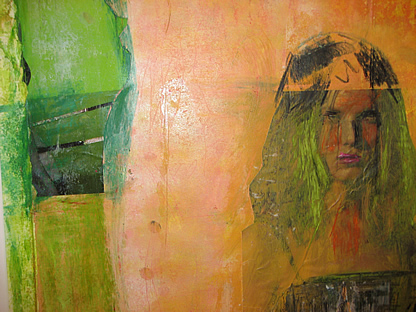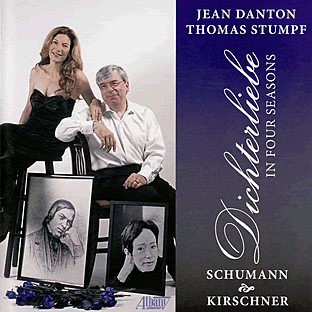BOOK PUBLICATIONS:
Waking the Bones, The Piscataqua Press, forthcoming.
Surrender to Light, Cherry Grove Collections.
My Life as a Doll, Autumn House Press.
The Red Dragon, a first prize chapbook published by Permafrost.
Slow Risen Among the Smoke Trees, Carnegie Mellon University Press.
Postal Routes, Carnegie Mellon University Press.
Twenty Colors, Carnegie Mellon University.
AWARDS:
The State of Maine’s Literary Arts Fellow granted by the Maine Arts Commission.
Reader’s Award for “Walking the Wife,” New Letters.
Honorable mention for “The Collector’s Favorite Doll.”
Nominee Lenore Marshall Prize.
Nominee, Patterson Poetry Book Prize.
Finalist Award, Massachusetts Cultural Council.
Finalist Award, Grolier Poetry Prize.
Individual Artist Grant, The New Hampshire State Arts Council.
BOOK
REVIEWS
Elizabeth
Kirschner’s “Twenty Colors” is a first
book quite remarkable for its consistency and maturity of
voice. The beautiful contradictions are conveyed with much
poise, confidence, and courage as the poet maintains a stance
that is once tough and tender, mediating between a gentle
embracing of disappointment and mistrust toward any promise
of paradise.
Nance
Van Winckel, Shenandoah
“In
her debut collection, “Twenty Colors,” Elizabeth
Kirschner offers a splendid chronicle of exiles and reprieves,
a chronicle in which vision operates at the extremes of
materiality, upon the flesh of everything.
Donald
Revel, Denver Quarterly
What
fascinates about “Slow Risen Among the Smoke Trees
is its overt delineation, through the medium of lyric poetry,
of a distinct, linear narration. What makes this book a
success is how Kirschner tells Lily’s story; the poems
are powerful; and moving, with the plot not so much narrated
as evoked. The real treasure is the wonderful last section,
where Lily must come to terms with both her past and her
present…all the poems work to create a Lilly who becomes
real in our eyes and then transcends that reality, becoming,
in the victory of her past, a moving symbol of human possibility
in the face of any odds.
Bern
Mulvey, The Missouri Review
Praise
for the forthcoming book, “My Life as a Doll.”
These
poems are dark, iridescent beads strung along a narrative
of embattled childhood that supports but never overrides
the lyrical force of Kirschner’s voice and vision.
The narrative begins with a mother’s violence and
follows it effects upon the daughter’s inner landscape—the
visions, the bouts of madness, the circling smoke of memory—as
she grows older. It’s the landscape that generates
the force behind these poems, rendered as is with stunning
imagery at every turn and with urgent rhythms that push
toward a kind of exorcism. These poems confront hard things
head-on, but far from being sensationalistic or depressing,
they are lush, fierce, and lovely.
Leslie Ulmann

Artwork by Sirarpi Heghinian Walzer
The
bleak ferocity of Kirschner’s lines often to comes
nigh to overwhelming this narrative of an abused childhood
but the strength of imagery, a richness for which this poet
is known, seizes the nightmares and transforms them into
events that can be handled, shaped and put aside. No, not
a happy ending but one that locates dignity and the forever
force of life.
Hilary
Masters
Reviews
of “The Dichterliebe in Four Seasons
…Several
of the poems closely follow Heine, but the emphasis of the
cycle is fundamentally altered—the love affair is
made to last longer, through four seasons rather than just
one, and the heat is turned down to a slow burn that is
perhaps more appealing for the modern listener than Heine’s
lyrics of infatuation. The listener is directed to Kirschner’s
cool but devastating final exit for the poet. It is perhaps
Kirschner’s blank verse that is most compelling—“In
vesper shadows, I can behold your silouette in violets”—and
it fits Schumann’s music.
Sam
Goody
I
love the folks at little Albany Records. I love them. You
never know what they’ll come up with next, but you
do know it will be passionate. Here is a collection of music
by both Schumanns—three famous songs and a handful
of piano Romanzes by both Robert and Clare. The comes the
“Dictherliebe,” Schumann’s ethereal cycle
about the course of a love affair—fitted with new
poetry, not a tranlation. “In wundershoen Monat Mai,”
though it translates “In the beautiful month of May,”
begins instead “I saw the lilacs in the rain.”
I liked the experiment. You coud argue that the German contributes
to the nature of the songs, but still, the newness of this
creation puts the music in a new and interesting light.
Mary
Kunz Goldman
Notable CDs:
The Dichterliebe in Four Seasons, Albany Records, spring 2007. This CD has my poetry set to Robert Schumann’s great love song cycle. It premiered in Vienna followed by American debut here in Boston. The CD features Jean Danton, soprano and pianist Thomas Stumpf and was recorded at Jordan Hall, Boston, MA.
New Dawn, Albany Records, fall 2008. Piano music and songs cycles featuring an eight poem cycle, “Lingering, Lonely Calls,” written by me and set to music by Carson Cooman.
The Revelations of Divine Love, Albany Records. Music by Carson Cooman, finale poem by Elizabeth Kirschner, nominated for the Pulitzer Prize, 2009.
For
audio clips please press the button below

AUDIO
CLIPS
Dichterliebe (In Four Seasons)
by Jean Danton; Thomas Stumpf
* Genre: Classical, Vocal
* Label: Albany Records
* Release: April 1, 2007
* Availability: Canada, United States
American poet Elizabeth Kirschner has created a new set of texts
for Dichterliebe, featured in this recording. Robert Schumann was
unwell in the years preceding the composition of Dichterliebe. The
year 1840, however,... show full description »
American poet Elizabeth Kirschner has created a new set of texts for
Dichterliebe, featured in this recording.
Robert Schumann was unwell in the years preceding the composition
of Dichterliebe. The year 1840, however, proved to be one of unexpected
delight. He was finally able to marry the woman he loved and coveted,
Clara Wieck, the daughter of his former teacher, Friedrich Wieck,
a musical icon in Leipzig. It seems odd, then, that after a five-year
struggle to obtain the right to marry the woman he loved and the
constant success of such works as Davidsbundertanze, Op. 6, Kinderszenen,
Op. 15 and the song cycles Liederkreis, Op. 24 and Frauenliebe und
Leben, Op. 42, he should turn to such a dark subject as the one
presented in his sixteen-song cycle Dichterliebe, set to texts by
the German poet Heinrich Heine. “A Poet’s Love”
is a murky tragedy with its early flourish of love, its eventual
deterioration and the poet’s despair of every loving again,
even preferring death to a new attempt. American poet Elizabeth
Kirschner, who teaches at Boston College and who has collaborated
with many modern composers, has created a new set of texts for Dichterliebe,
which breaks the cycle into four distinct sections of four songs
each (Spring I-IV, Summer V-VIII, etc.). Kirschner has taken the
“season of love” in the Heine poems and transformed
them into a full year of desperation, elation, introspection and
rejection. Soprano Jean Danton has performed widely on the opera,
oratorio, musical theatre and concert stage, and has previously
performed in the world premiere of Carson Cooman’s Seducing
Summer by the Sea, on a libretto by Elizabeth Kirschner.